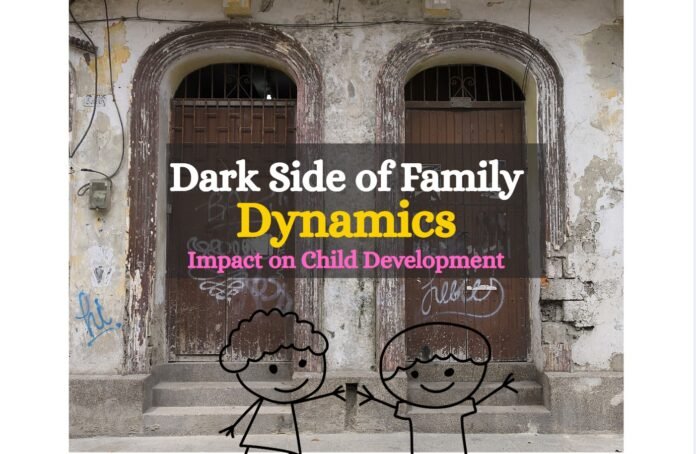The family unit is a complex web of relationships that can either nurture or harm its members. In households where fathers dominate and mothers are oppressed, children often suffer the most. This article explores the impact of such family dynamics on child development.
The Dominance of Fathers: A Toxic Dynamic
In many households, fathers wield significant power and control over family decisions. This dominance can lead to emotional trauma for mothers and children. When fathers prioritize their own needs and desires over others, it creates a toxic environment that can have long-lasting effects on children’s emotional and psychological well-being.
The Impact on Mothers
Mothers in these households often experience chronic stress, anxiety, and depression. The lack of autonomy and control over their lives can lead to feelings of hopelessness and despair. Research has shown that mothers who experience emotional trauma are more likely to experience physical health problems.
The Impact on Children
Children growing up in these households are at risk of developing emotional and psychological problems. They may struggle with emotional regulation, leading to anxiety, depression, or other mental health issues. These children may also develop unhealthy relationship patterns, such as dominance and submission.
The Importance of Promoting Healthy Family Dynamics
Growing up in a household with a dominating father and an oppressed mother can lead to various mental health issues in children, including:
- Anxiety and Depression: Children may experience anxiety and depression due to the stress and tension in the home.
- Low Self-Esteem: Children may develop low self-esteem and self-worth due to a lack of validation and support. Difficulty with
- Emotional Regulation: Children may struggle with managing their emotions, leading to mood swings, irritability, and other behavioral issues.
- Unhealthy Relationship Patterns: Children may learn unhealthy relationship patterns, such as dominance and submission, which can impact their future relationships.
In many households, fathers wield significant power and control over family decisions. This dominance can lead to emotional trauma for mothers and children. When fathers prioritize their own needs and desires over others, it creates a toxic environment that can have long-lasting effects on children’s emotional and psychological well-being.
Children’s Behavioral Disorders
Mothers in these households often experience chronic stress, anxiety, and depression. The lack of autonomy and control over their lives can lead to feelings of hopelessness and despair. Research has shown that mothers who experience emotional trauma are more likely to experience physical health problems.
The Impact on Children
Children growing up in households with dominating fathers may also develop behavioral disorders, including:
- Aggression and Violence: Children may learn aggressive behavior from their fathers and may become violent or aggressive towards others.
- Conduct Disorder: Children may develop conduct disorder, characterized by aggressive and antisocial behavior, due to the lack of boundaries and discipline in the home.
- Oppositional Defiant Disorder (ODD): Children may develop ODD, characterized by a pattern of negative, hostile, and defiant behavior, due to the power struggles and conflicts in the home.
The Struggle of Pakistani Girls
Pakistani girls raised in these family dynamics often face significant challenges, including:
- Limited Autonomy and Freedom: Girls may have limited autonomy and freedom to make their own choices, leading to feelings of frustration and resentment.
- Pressure to Conform to Societal Norms and Expectations: Girls may be pressured to conform to societal norms and expectations, limiting their opportunities for personal growth and development.
- Lack of Self-Expression: Girls may struggle to express themselves and their emotions, leading to feelings of isolation and disconnection.
- Increased Risk of Mental Health Issues: Girls may be at a higher risk of developing mental health issues, such as anxiety and depression, due to the societal pressures and expectations placed upon them.
- Barriers to Higher Education: Girls may face significant barriers to accessing higher education, including societal expectations, financial constraints, and a lack of support.
The Importance of Promoting Healthy Family Dynamics
To promote healthy child development, it is essential to recognize the harm caused by toxic family dynamics and work towards creating a more nurturing environment. This can be achieved by promoting healthy communication, mutual respect, and empathy within families.
A Call to Action
By working together, we can create a society that values the well-being and autonomy of all individuals, including children, and promotes healthy family relationships. This requires a fundamental shift in our societal values and norms, and a commitment to promoting healthy family dynamics and supporting individuals who are affected by toxic family relationships. By doing so, we can help families become a source of support and love, rather than a source of oppression.
The author is child psychologist & holistic child development expert @mindfulme.official | @holistic_yogalounge





